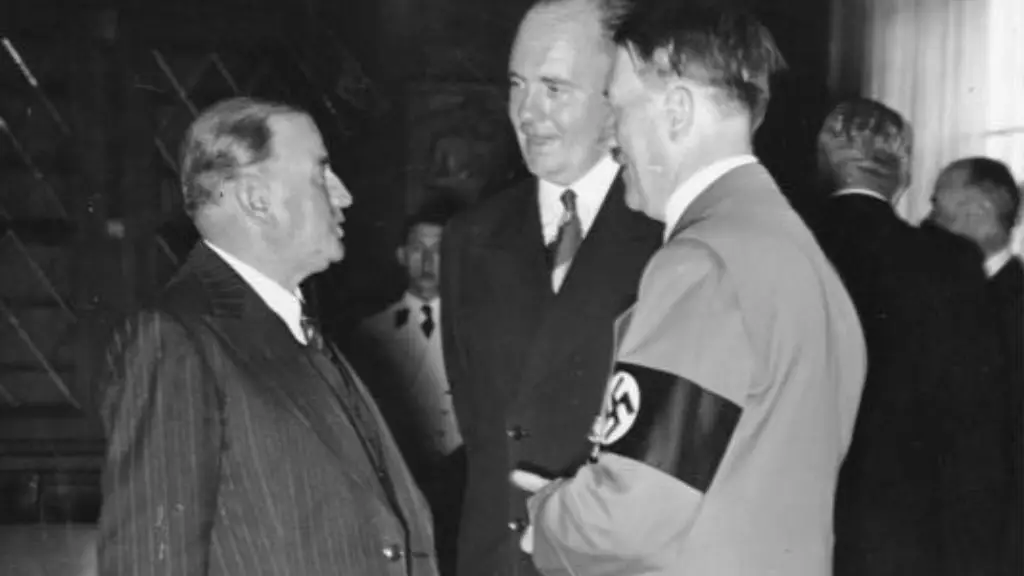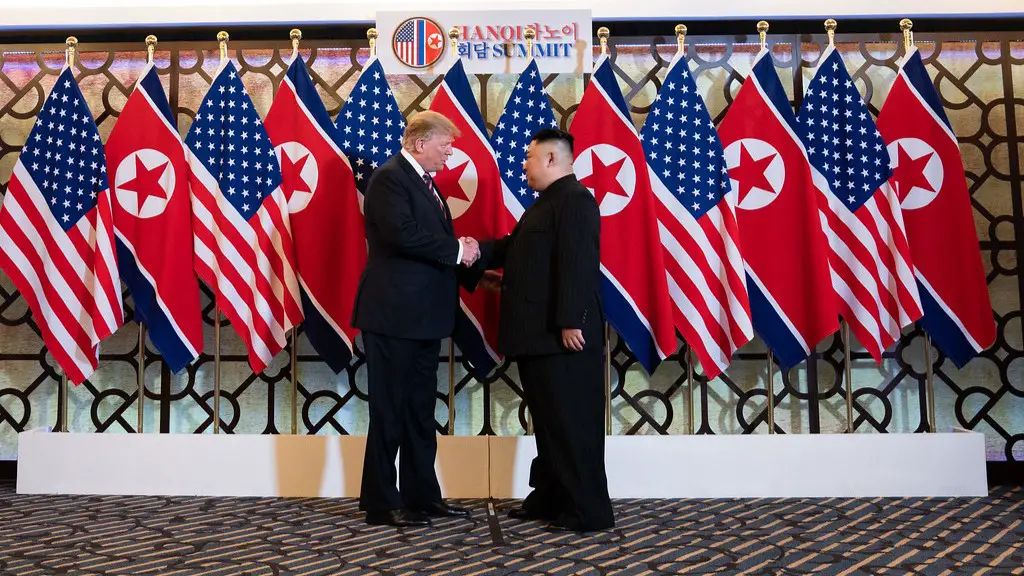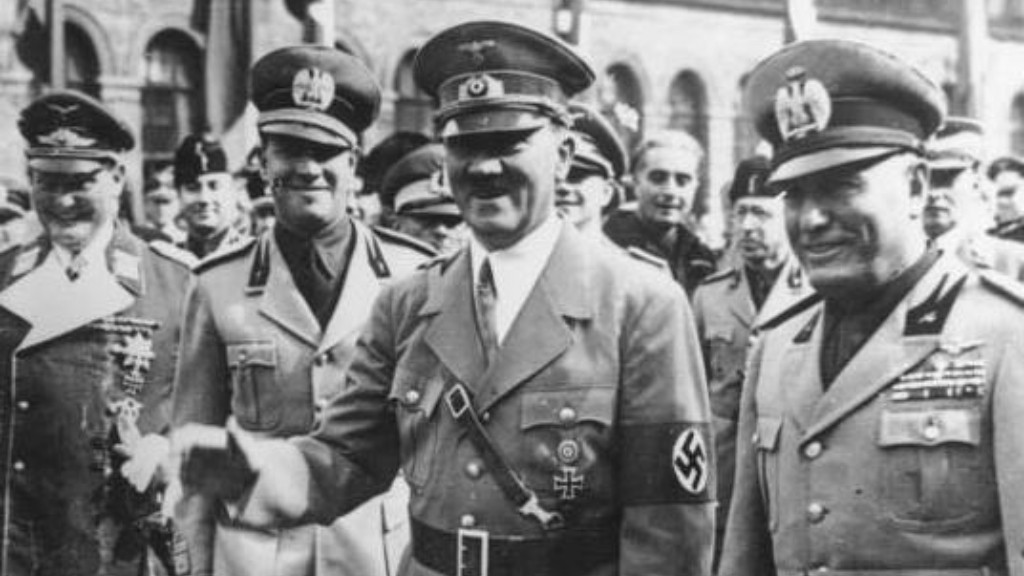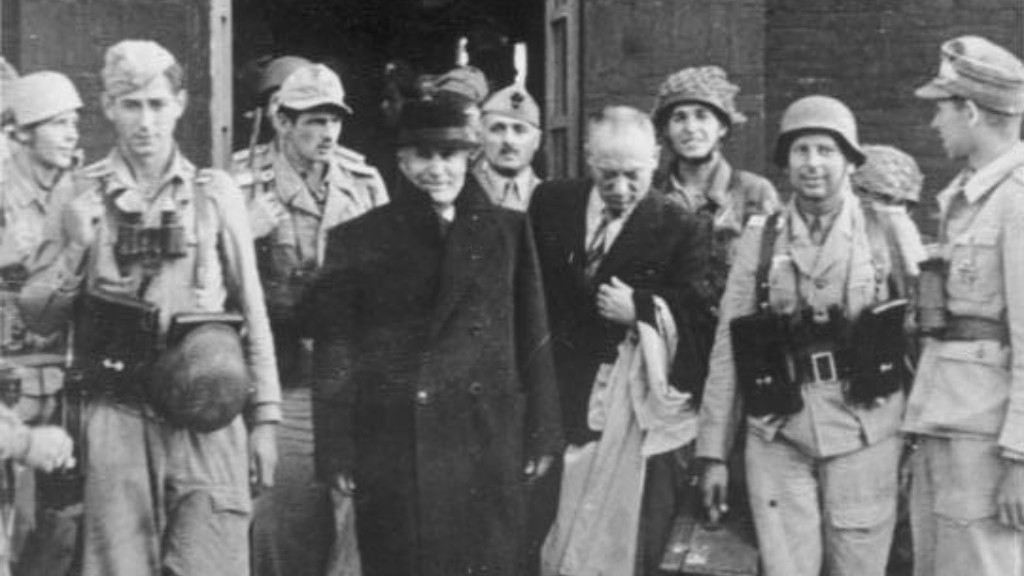Adolf Hitler’s rise to power began in Germany in September 1919 when Hitler joined the political party known as the Deutsche Arbeiterpartei – DAP (German Workers’ Party). The DAP was one of many extreme right-wing groups that had sprung up in Germany in the wake of its defeat in World War I and the resulting economic, social, and political turmoil. The DAP was distinguished from other right-wing groups by its greater emphasis on anti-Semitism and its adoption of the 25-point program that called for radical changes in government and society. Hitler’s success in joining and then taking over the DAP led to his appointment as the party’s leader in 1921. From there, Hitler’s power and influence grew rapidly. In January 1933, Hitler was appointed Chancellor of Germany and five months later he had full dictatorial powers. By the late 1930s, Hitler had transformed Germany into a one-party dictatorship and had launched a aggressive campaign of expansionism that led to the outbreak of World War II in 1939.
Adolf Hitler rose to power because he was a gifted speaker and was able to convince people that his ideas were the right ones for Germany. He also had the support of the military and the industrialists, which gave him the resources he needed to build up the Nazi party and to put his plans into action.
Which was the major reason for Adolf Hitler’s rise to power in Germany?
The Great Depression of the early 1930s was a time of great economic hardship and uncertainty. Many people were out of work and struggling to make ends meet. This widespread economic misery, fear, and perception of worse times to come, as well as anger and impatience with the apparent failure of the government to manage the crisis, offered fertile ground for the rise of Adolf Hitler and his Nazi Party. The Nazis promised to solve the economic crisis and make Germany great again. This appeal to national pride and economic desperation helped the Nazis win enough support to take power in 1933.
Adolf Hitler came to power with the goal of establishing a new racial order in Europe dominated by the German “master race”. This goal drove Nazi foreign policy, which aimed to: throw off the restrictions imposed by the Treaty of Versailles; incorporate territories with ethnic German populations into the Reich; acquire new territory for German settlement; and achieve racial purity through the extermination of Jews, Romani people, homosexuals, and others deemed racially inferior. The Nazi regime achieved its goals in part through aggressive expansion, culminating in the outbreak of World War II in 1939.
What was a major reason for Hitler’s rise to power quizlet
The rise of Adolf Hitler to power in Germany during the 1930s was the result of a number of factors. The German people were angry about the Treaty of Versailles, which had been imposed on them by the victorious Allies after World War I. Hitler was able to capitalize on this anger and gain popular support by promising to overturn the treaty. Additionally, Hindenburg and Papen, two key political figures at the time, foolishly thought they could control Hitler and so they helped him gain power through a seedy political deal. Ultimately, the German people were to pay a terrible price for their support of Hitler and his Nazi regime.
It is evident that Hitler had a strong desire for territorial expansion and this was largely due to his plans for reunifying the German people and creating a space where they could become economically self-sufficient and militarily secure. While many historians argue that this ambition was the main driving force behind Hitler’s actions, it is clear that other factors such as his hatred of Jews and other minorities played a role in his decision making.
What were Hitler’s intentions for the Soviet Union?
Hitler’s goal was to create more living space for the German people, and he saw the Soviet Union as a major obstacle to this goal. He therefore ordered plans to be drawn up for an invasion of the Soviet Union, intending to destroy the Communist regime and establish Nazi hegemony. However, these plans were ultimately never carried out, and the Soviet Union remained an enemy of Nazi Germany throughout the war.
The son of Hitler has been a topic of debate for many years. Some people believe that Hitler had a son with a Frenchwoman named Charlotte Lobjoie. Jean-Marie Loret was born in March 1918 and died in 1985, aged 67. Loret married several times, and had as many as nine children.
What are the 10 major causes of the WWII?
1. Rise of Hitler: Upon achieving power, Hitler smashed the Treaty of Versailles and began a massive military expansion.
2. Rise of Fascism in Italy: Mussolini’s fascist regime in Italy became a key ally of Hitler’s Germany.
3. Japanese Expansionism: Japan’s expansion into Asia threatened the interests of both the United States and the European colonial powers.
4. Economic Depression: The global economic depression of the 1930s exacerbated tensions between the major powers.
5. Anti-Communism: The fear of communism was a key driver of both Nazi and Japanese expansionism.
6. Appeasement: The policy of appeasement pursued by the British and French governments contributed to the outbreak of war.
7. Militarism: The increase in military spending and the development of new weapons technology increased the risk of war.
8. Nationalism: Nationalistic rivalries between the major powers were a key cause of the war.
9. racism: The Nazi regime’s racial policies were a key factor in the outbreak of war.
10. xxxxxxxxx
Russia has been defeated in war on several occasions in the modern era. Some of these defeats include the Russo-Japanese War of 1904-1905, the Russo-Persian War of 1826-1828, and the Russo-Turkish War of 1877-1878.
What did Germany want from Russia
The goal of the Germans was to create more Lebensraum, or living space, for the German people. This meant the eventual extermination of the Slavic peoples who lived in the area. The Slavs were deported to Siberia, where they were subject to Germanization, enslavement, and genocide.
The most important contribution made by the United States was its entry into the war. The United States had the might to tip the balance in the Allies’ favor and make a decisive difference in the war. If the United States had not entered the war, it is very possible that the Allies would have lost.
What is Hitler’s illness?
It has been proved that Adolf Hitler suffered from idiopathic Parkinson’s disease, which is a degenerative disorder of the nervous system that affects movement. No indication for postencephalitic parkinsonism was found in the clinical symptoms or the case history, which is another form of Parkinson’s disease that is caused by inflammation of the brain.
August Kubizek was born on August 3, 1888 in Linz, Austria-Hungary. He was a friend of Adolf Hitler, and is known for his book The Young Hitler I Knew, which was published in 1953. Kubizek died on October 23, 1956 in Eferding, Austria.
Is Adolf still a common name
Adolf was a widespread name in German-speaking countries until it became infamous through the Nazi dictator After Hitler took power in 1933, the name briefly spiked, but became very unpopular after 1942 From 1951 onwards, the name was barely used anymore.
While the Western powers certainly played a role in the defeat of Nazi Germany, it was ultimately the Soviet Union that proved to be the decisive factor in the war. With their vast armies and vast territory, the Soviets were able to absorb the German offensive and then launch a counter-attack that drove the Nazis all the way back to Berlin. While the Western powers played a role in the war, it was the Soviets who ultimately won it.
What country has the most deaths in World War 2?
The Soviet Union was a country that was formed after the Russian Revolution in 1917. The Soviet Union had a variety of different ethnic groups and languages. The Soviet Union suffered the highest number of fatalities of any single nation, with estimates mostly falling between 22 and 27 million deaths. China then suffered the second greatest, at around 20 million, although these figures are less certain and often overlap with the Chinese Civil War.
The Japanese attack on Pearl Harbor on December 7, 1941 was a turning point in World War II. Up until that point, the United States had been debating whether or not to intervene in the conflict. The attack made the decision clear, and the next day Congress declared war on Japan with only one dissenting vote. The Pearl Harbor attack was a devastating blow to the United States, but it ultimately led to America’s involvement in the war and eventual victory.
Conclusion
Adolf Hitler’s rise to power was due to a combination of factors. These included the economic and political fallout from Germany’s defeat in World War I, the weak and ineffectual government of the Weimar Republic, the appeal of Hitler’s rhetoric and his promises to improve the lives of Germans, and the Conniving and manipulative actions of Hitler and his allies.
Adolf Hitler’s rise to power was due to a number of factors. These include the economic situation in Germany at the time, the weakness of the Weimar Republic, Hitler’s own charisma and ability to appeal to the masses, and the support of the military. While there may be some debate over which of these factors was most important, it is clear that they all contributed to Hitler’s success.




